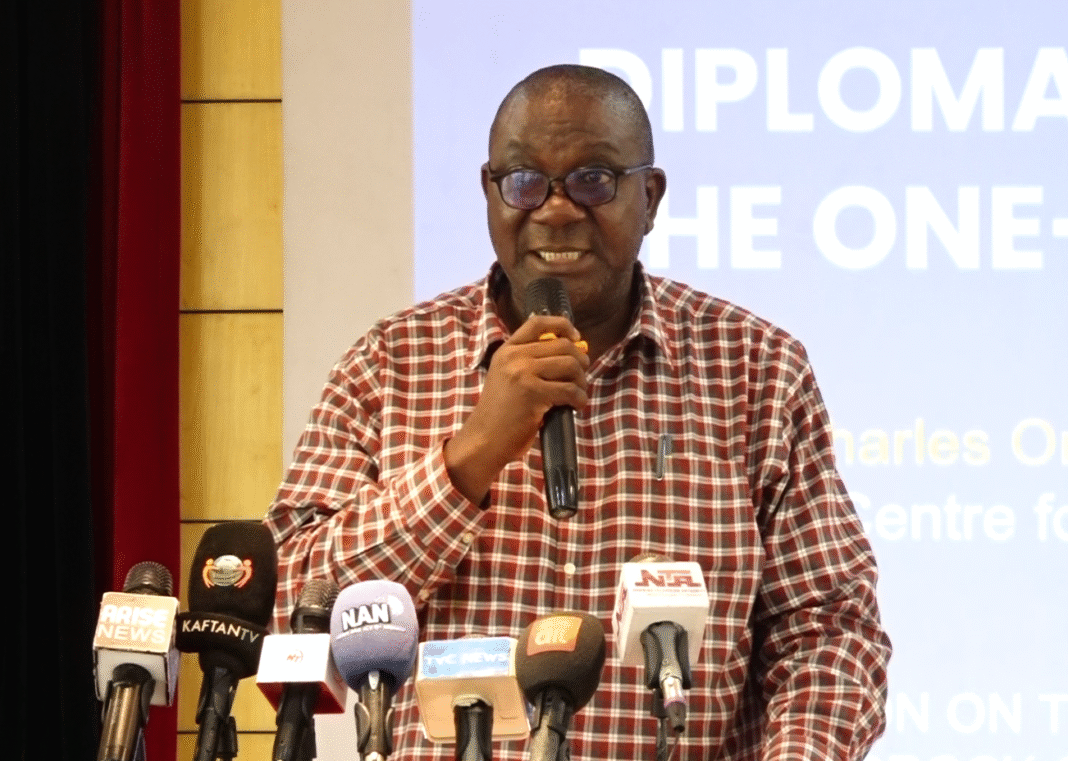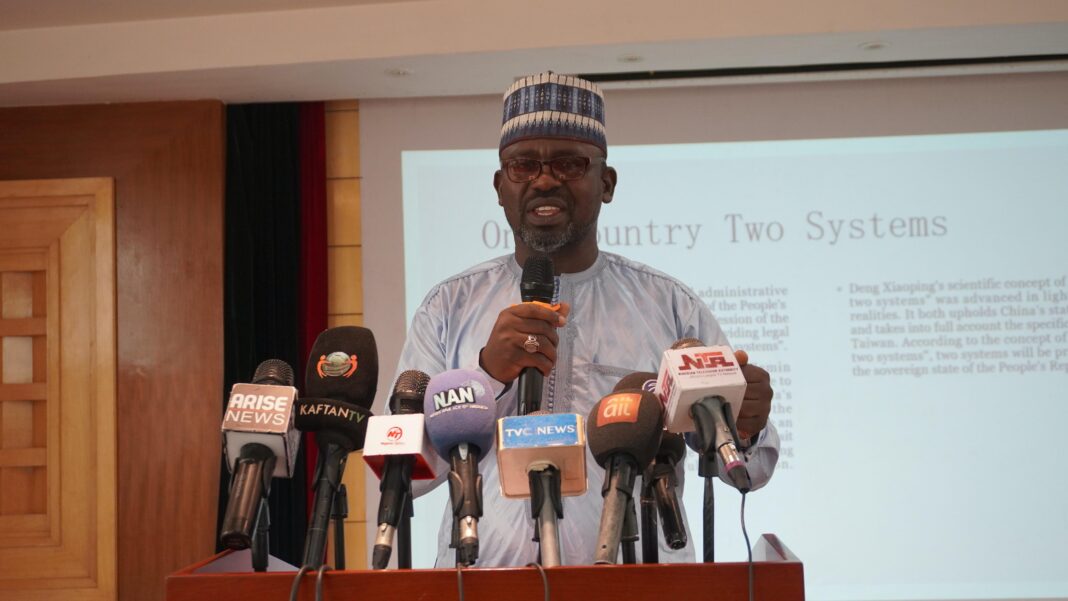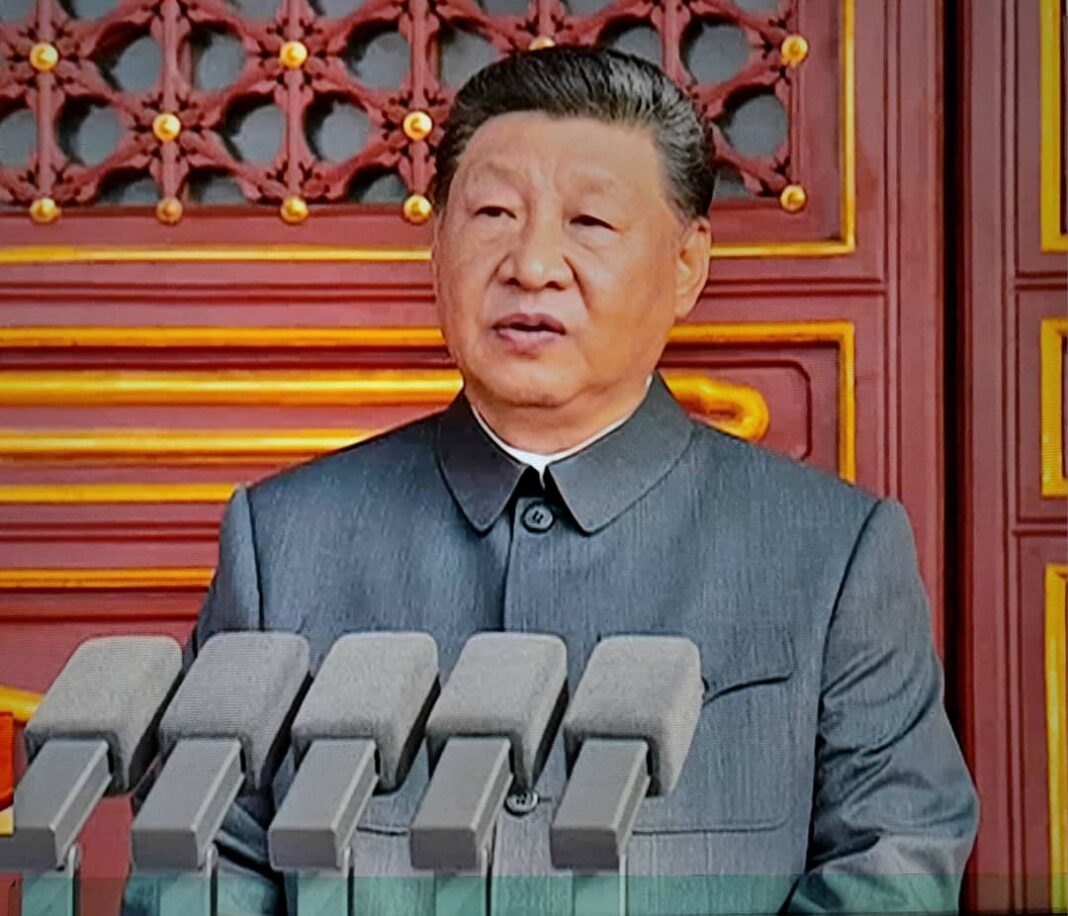By Charles Onunaiju
Last July, at the 17th BRICS Leaders’ Summit in Brazil, with the theme of “Strengthening Global South Cooperation and Promoting a more Inclusive and Sustainable Global Governance”, Nigeria’s President, Ahmed Bola Tinubu called for “a financial restructuring and a re-evaluation of the global social and governance order”, and added that “Nigeria re-affirms its commitment to strategic collaboration that translates into sustainable and inclusive development for all”.
Now, an important opportunity and strategic platform has offered itself for Nigeria to translate her resolve and “commitment to strategic collaboration” into practical action that would give effect to “sustainable and inclusive development”.
At the recent Summit, of the 25th Heads of States Council of the Shanghai Cooperation Organization (SCO) held in the Chinese city of Tianjin, Chinese President Xi Jinping proposed the Global Governance Initiative (GGI), and expressed China’s resolve to “work with all countries for a more just and equitable global governance system and advance toward a community with a shared future for humanity”. He went further to outline the essential and basic features of the proposed Global Governance Initiative to include first and foremost, sovereign equality, which recognizes the equal weight and stake of all states in the international system which must translate to inclusive decision-making and equitable participation of all State actors thereby giving effect to the democratisation of the international system.
Additionally, the Initiative holds that the representation and voice of the developing countries should be further enhanced and this clearly aligns with Nigeria’s and Africa’s long standing demands for the reform of key international institutions to reflect the realities and especially, the coming into reckoning of Africa and other countries in the Global South to the emerging multi-polar international order.
The Global Governance Initiative (GGI) also calls for unconditional adherence to the United Nations system as the embodiment of universally recognized expression of the law and rule-based system of international intercourse , while cautioning that “the house rules of a few countries must not be imposed on others”.
The Global Governance Initiative (GGI) further emphasize multilateralism which shall be entrenched in the architecture of global governance system that would be characterized by “extensive consultations and joint contribution for shared benefit”, and further reaffirmed the centrality of the United Nations, whose authority and key role is irreplaceable in global governance. The proposed framework for Global governance underscored the fact that the initiative would not be just about the “games, Nations play”, but should be one that “ensure that the people of every nation are the actors in and beneficiaries of Global governance, so as to better tackle the common challenges of mankind. Only the People-centered approach to global governance can guarantee and deliver tangible results.
The fifth leg of the proposed Initiative would focus on “taking real actions”, that produce tangible results.
Traditional international forums are usually characterized as platforms for grandstanding and diplomatic circus- show where actors say what they did not mean and with little effects on delivering tangible outcomes. Nigeria and Africa have been on the receiving end of international grandstanding and highfalutin Western proposals that deliver little or nothing in practice.
For example, in 2013, U.S President Obama launched Power Africa Initiative, meant to double access to electricity in Sub-Saharan Africa where estimated 600 million people lack access then. This year, (2025) the U.S government shut down the Power Africa Initiative for persistent failure to meet targets and lack of significant progress. A report in 2019 revealed that Power Africa Initiative overstated its achievements, with many projects and energy deals, never materializing and most of modest new connections then, coming from mere handled solar lanterns. Even, the U.S -led Build Back Better (B3W) world, a project to supposedly address and support global infrastructure deficit and rival China,s Belt and Road Initiative, fell apart before its one year anniversary for zero funding outlay.
In the proposed Initiative on Global Governance, actions will speak louder than words. The Chinese leader said that “the Global Governance Initiative would adopt a systematic and holistic approach, coordinate global actions, fully mobilize various resources” to strive and bring about more visible and practical outcomes. The new map of global governance envisaged by the Initiative, would uphold the original commitment to peaceful co-existence, build and strengthen confidence in win-win cooperation and more crucially advance forward, in line with the trend of history and also thrive, as it keeps pace with the times.
Nigeria-China comprehensive strategic partnership declared by the two sides during President Tinubu,s State visit to China last year would now more effectively function as an important platform to advance their shared vision of global governance reforms, whose important features have been meticulously articulated in the Global Governance Initiative (GGI).
As it is remarkably well known, China’s Initiatives are not empty talks or political grandstanding because they are issued from an in-depth and rigorous study of the subjects in question, in all their historical dimensions and reflect the trends that shape contemporary human prospects and outlook. The Belt and Road Initiative (BRI), an outstanding international public goods for which over 150 countries are currently in partnership, with more than a decade of seamless operation and China,s investment of more than one trillion U.S dollars exemplifies the successful practice of “extensive consultations and joint contributions for shared benefits”.
Nigeria and China have elaborate consultative mechanism through the institutionalized process of inter-governmental dialogue, which have enriched bilateral cooperation between the two sides and enabled misconceptions of understanding and challenges in cooperation to be solved through more cooperation and not less. In the specific instance of the proposed Global Governance Initiative (GGI), the mechanism for extensive bilateral cooperation between the two sides can be used to mutually enrich the vision of global governance reforms and methodically advance it on the global platform because it reflects the shared concerns of both sides.
The existential framework of China and Nigeria cooperation that have withstood the test of time and remarkably and currently reached their best time in history and even more room for growth, can sustainably drive their efforts into rallying the world to the prospects and practical roadmap to realize the issues in the Global Governance Initiative.
The Initiative resonate with Africa’s historical calls for equitable and inclusive international system that is both non-discriminatory and fully democratic. It also reflects, Africa’s concerns that the International governance system should solve real problems, and produce practical outcomes, as a meaningful response to the many challenges confronting humanity. There is a common understanding that humankind is becoming a community of shared future and the corollary to this understanding is that a global governance mechanism that would adequately respond to this challenges must be inclusive and broadly participatory and the Initiative on global governance provides an outline for such important undertakings.
The vision of the common humanity can be more practically realized within the framework of a Global governance apparatus that reflect both the general and common will of all the peoples, whose most extant institutional representation is currently the United Nations system.
The Global Governance Initiative (GGI) has come at a very opportune time when humanity is at a cross road and the choice it has to make is both grim and optimistic and a buff of fresh air has just emerged to compel humanity in the direction to work for not only, for self-preservation but collective security with the obvious dividends of universal peace and shared prosperity.
Mr. Onunaiju is Research Director of Abuja based Think Tank.






